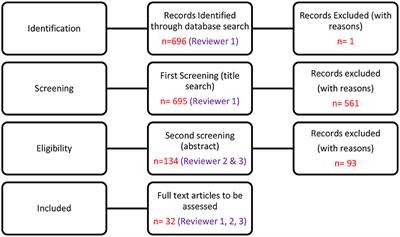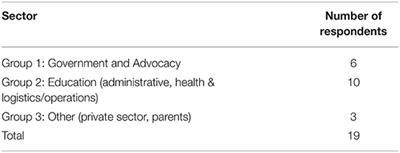ORIGINAL RESEARCH
Published on 06 May 2022
Mind the Gap: Understanding Differences Between Sexual and Reproductive Health-Related Legal Frameworks on Paper and in Practice

doi 10.3389/fgwh.2022.838976
- 4,137 views
- 5 citations
2,994
Total downloads
21k
Total views and downloads
ORIGINAL RESEARCH
Published on 06 May 2022

MINI REVIEW
Published on 30 Mar 2022

COMMUNITY CASE STUDY
Published on 28 Jan 2022

